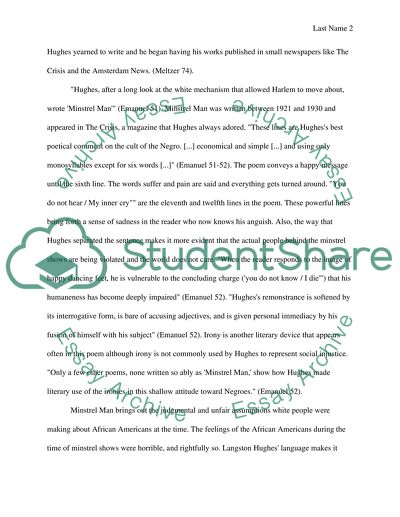Cite this document
(“The Topic of Racism in Writings by Langston Hughes Research Paper”, n.d.)
Retrieved from https://studentshare.org/literature/1416167-final-research-paper
Retrieved from https://studentshare.org/literature/1416167-final-research-paper
(The Topic of Racism in Writings by Langston Hughes Research Paper)
https://studentshare.org/literature/1416167-final-research-paper.
https://studentshare.org/literature/1416167-final-research-paper.
“The Topic of Racism in Writings by Langston Hughes Research Paper”, n.d. https://studentshare.org/literature/1416167-final-research-paper.


